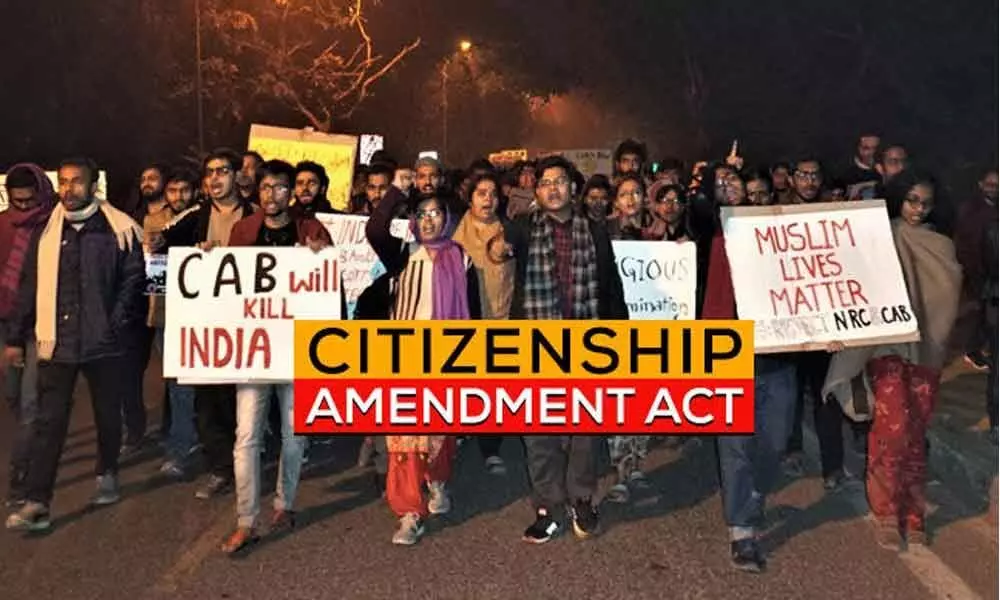Centre needs to allay fear over citizenship

India celebrated its 71st Republic Day with the usual amount of patriotic fervour and display of huge assortment of cultural diversity across the length and breadth of the country.
India celebrated its 71st Republic Day with the usual amount of patriotic fervour and display of huge assortment of cultural diversity across the length and breadth of the country.
Colourful Republic Day Parade on Janpath in the national capital highlighted India's traditions, its ethnic mixture, achievements in various fields and the dedication of armed forces in safeguarding India's security.
But millions of citizens, who traditionally greeted each other with usual 'Happy Republic Day', seem to have taken a different route this time as their social media greetings accompanied the image of the preamble of Indian Constitution.
As things stand today in the country following the abrogation of Article 370, enactment of amended Citizenship Act and the Centre's move to implement controversial NPR and NRC, it is the silent protest of a large section of disgruntled populace who fear that the 70-year-old Indian democracy is in peril.
It is true that the BJP-led Union government has been elected by a huge majority and the laws have been passed by both the Houses of Parliament, duly agreed upon by the President. But, however, doubts have been raised on the intention of the government in bringing out new legislations that apparently look like divisive in nature.
Any categorisation in the name of religion is understood to be against the spirit of Constitution which assures a democratic secular India. And there comes the protest – widespread, unwavering and spirited. When Jammu & Kashmir was deprived of its statehood and two new Union Territories were created, questions were raised if an elected government could abolish States, casting doubts over stability of the federal framework of the country.
Intelligentsia and students from across the nation came out on to the street in protest against citizenship law and joined by women, children, young, old, Hindus, Muslims, Sikhs and Christians. Protestors carried Tricolour and placards with slogans against the government moves. If these huge masses of agitators have been misled and the legislations misinterpreted, it is the government's duty to clarify.
Instead of using force to dispel the protesting crowd, a mechanism should be devised to convince the people. Let them understand that India is not a territorial empire. It is a historical entity founded on the principle of 'unity in diversity'.
Somehow, for the past few years, apprehensions are on the rise that there is shift from the idea of territorial India to ethno-religious India which differentiate the people on the base of whom they worship, what they eat and what they wear.
The idea behind sending images of the preamble of Constitution along with Republic Day greetings propagate the idea that the new legislations go against the spirit of democratic, secular India which does not equate nation and religion.
The developments in Assam where thousands of people – including senior citizens, war veterans and even elected representatives of the local communities – were denied citizenship are the major reason for this pan-India uprising.
This also caused a divide between some States and the Centre with many of them – including Telangana - passing resolution against citizenship law. Ostensibly, these developments cast a shadow on the federal fabric of the country. Yes, it is high time that the Union government did something to bring back normalcy in the country.














